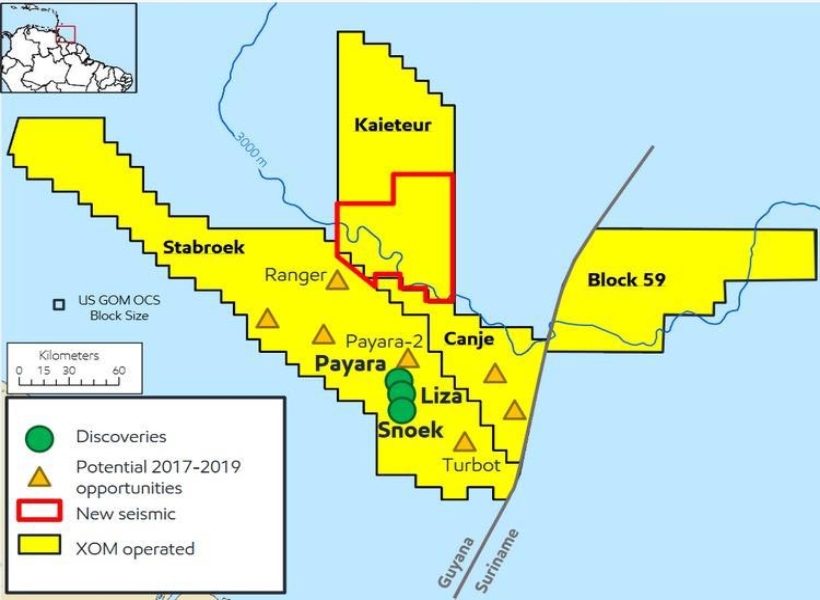By Abena Rockcliffe
There is consensus in Guyana that ring-fencing is crucial. The differences in options lie within the type of ringfencing. Some believe that each oil project within a block should be ringfenced; others, including the government, are of the opinion that ringfencing the blocks is a good enough safeguard.
At a press conference hosted earlier today, ExxonMobil Guyana President Alistair Routledge acknowledged the concerns about ringfencing and said that it would be upheld by his company. He said that the revenues from Stabroek Block cannot cover expenses of operations in another block it manages offshore Guyana.
Funnily, ExxonMobil has already been accused of trying to pull a fast one in that regard.
Up until last year, ExxonMobil had a hand in three blocks in Guyana—Stabroek, Canje, and Kaieteur. The giant has since withdrawn from the Kaieteur Block.
However, the second audit report on ExxonMobil Guyana expenses found that during the period 2018 to 2020, it used revenues from oil-producing projects in the Stabroek Block to cover expenses related to Kaieteur and Canje. The report recorded some five instances when this occurred.
Today, Routledge said that those allegations have not yet been put to rest as, according to him, the audit process continues.
Routledge was adamant that despite not yet being able to prove otherwise, Exxon did nothing wrong in the context of trying to pass on costs. Routledge said that hundreds of millions of US dollars have been invested in Kaieteur and Canje. ExxonMobil, having withdrawn from Kaieteur, won’t be able to recover its share of the accumulative investments from that block. That he said will be counted as a loss. But the company hopes that at some point, Canje will accrue revenues. Only then can the costs incurred there be recovered.
Routledge said that each block has its own cost bank, and therefore, regardless of what the audit found, he is sure no costs from the Canje and Kaieteur operations were covered by Stabroek.
Despite the allegations of not even confirming to the broad ringfencing measure, Routledge said that that form is what is best for Guyana.
Routledge said that the benefit of block ringfencing is that it can accelerate investment and avoids the stranding of resources, especially in deep water operations. “There is no value leakage,” he declared.
He stressed that deep water operations require massive investments, approximately US$10B or more per project.
Further, Routledge said that in total thus far, the Stabroek Block consortium—Exxon, CNOOC, and Hess—invested some US$29B in the Stabroek Block. That figure accounts for capital and operating expenditure.
Only US$19B has been recovered thus far since the start of operations in 2019, leaving US$10B still to be recouped. That is twice the size of this year’s national budget.













